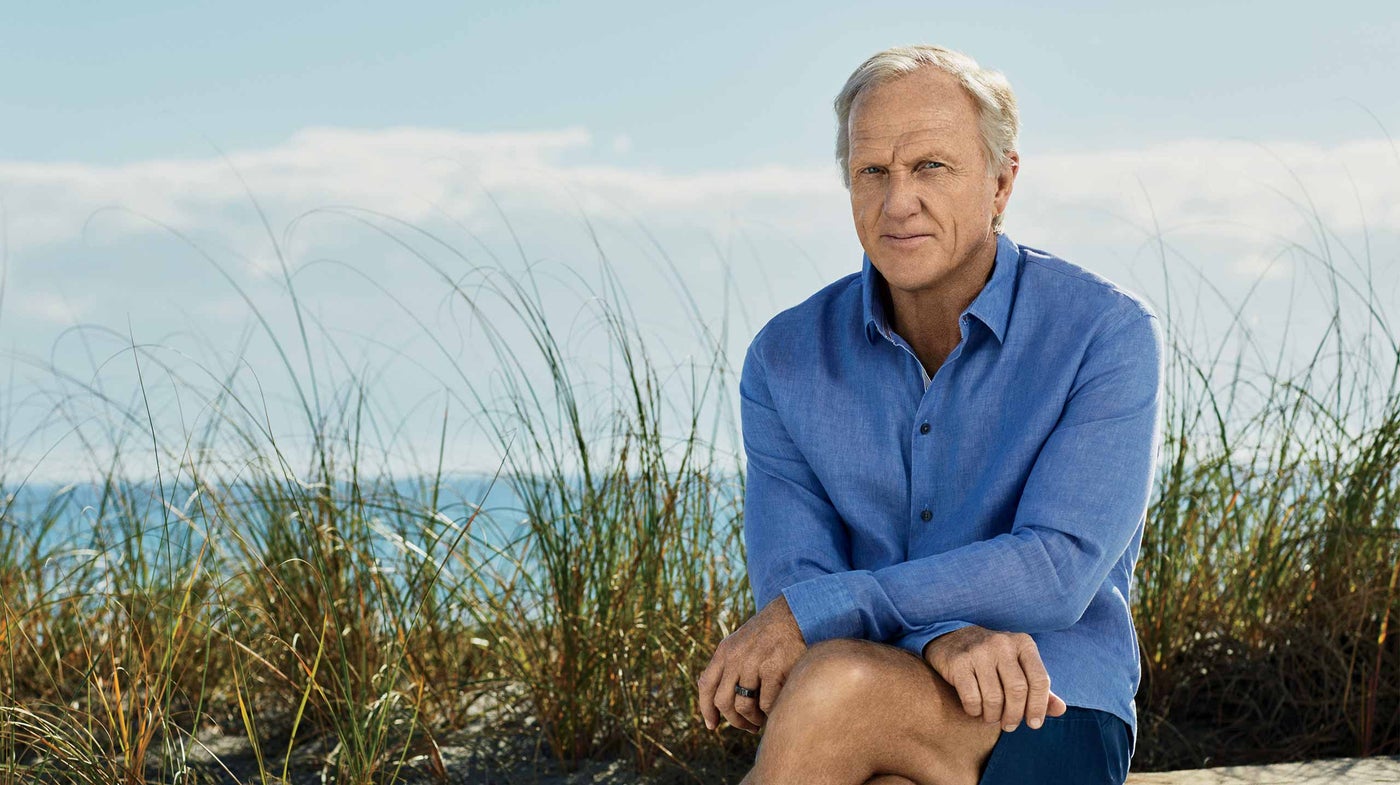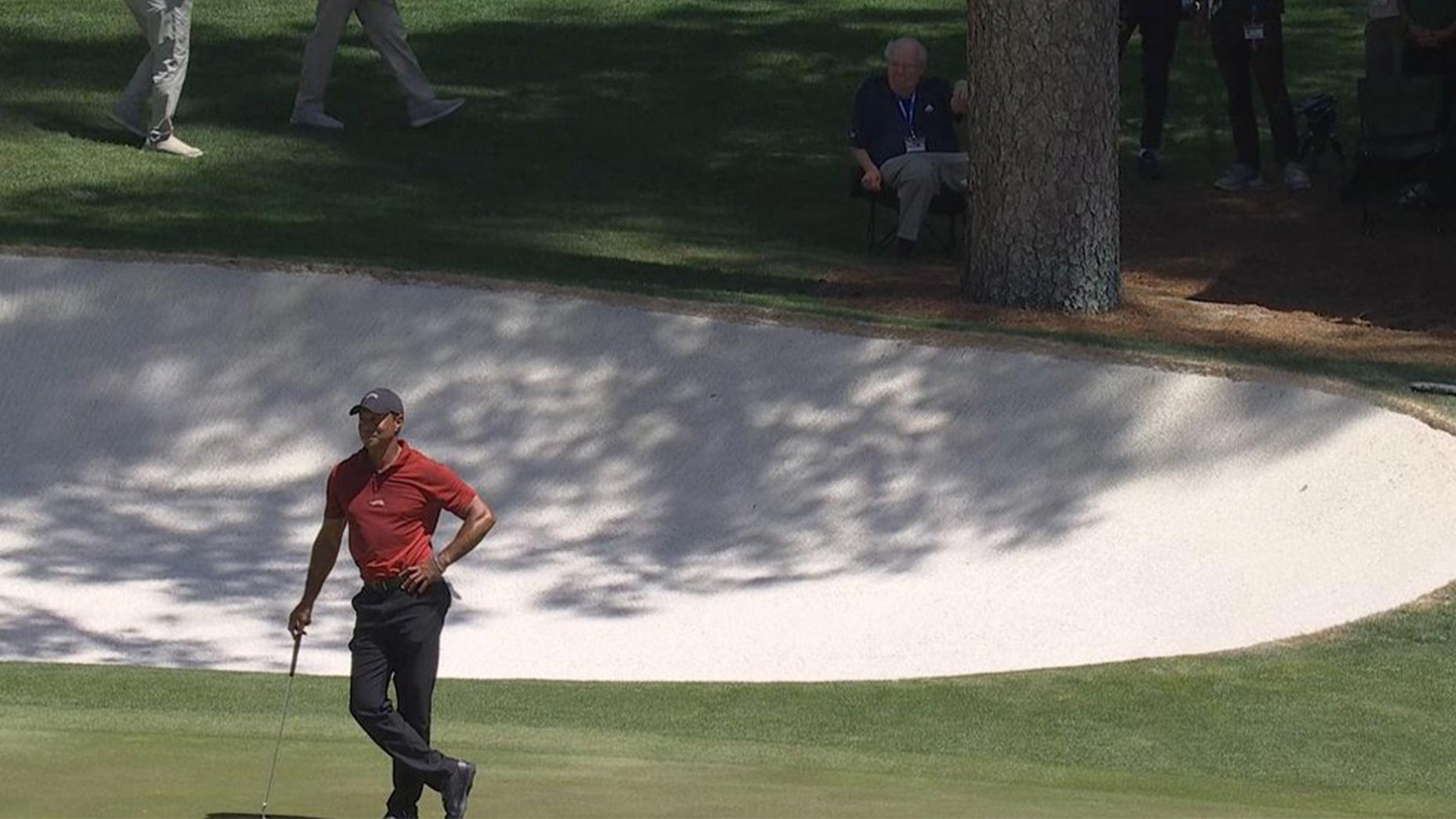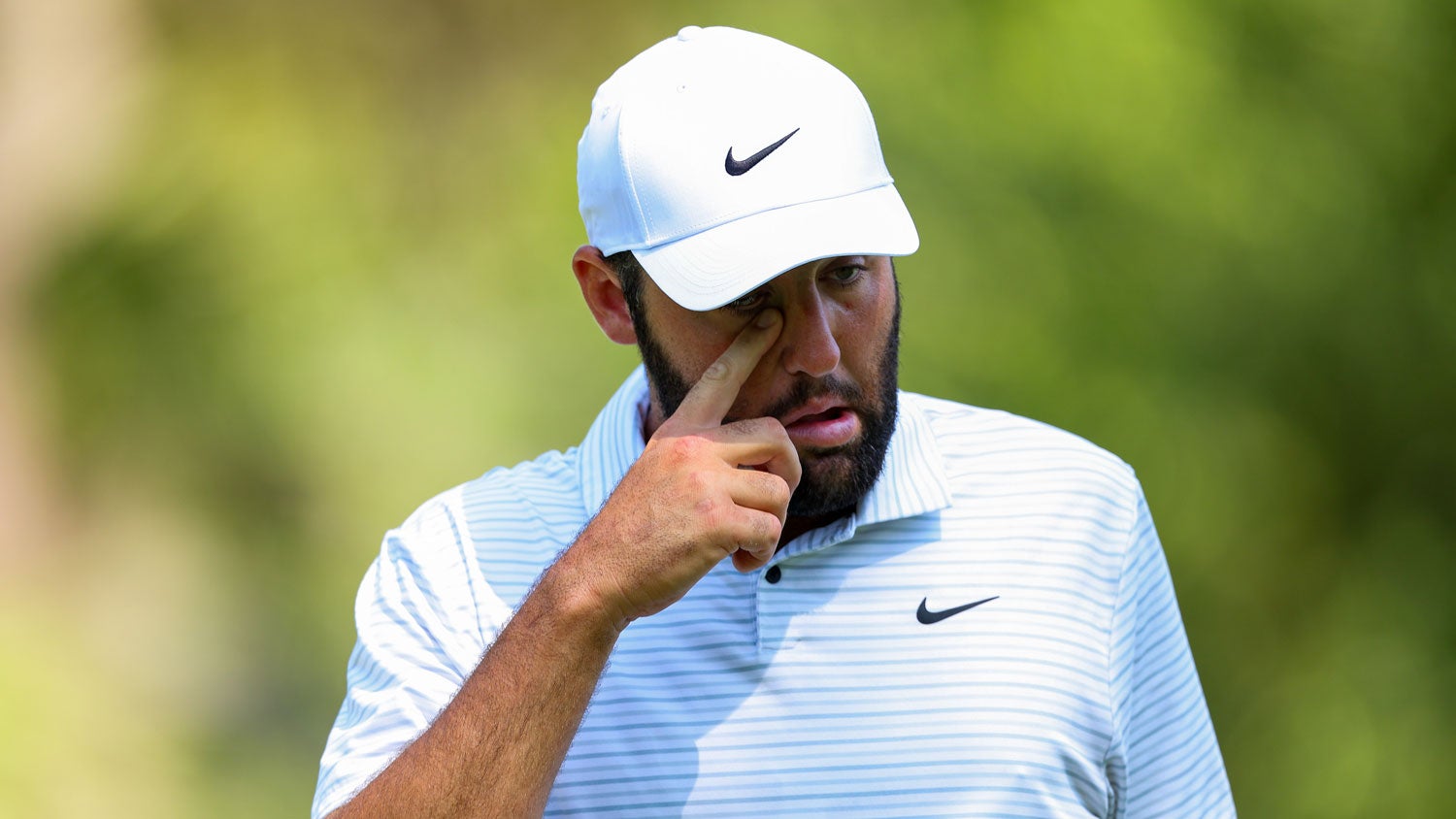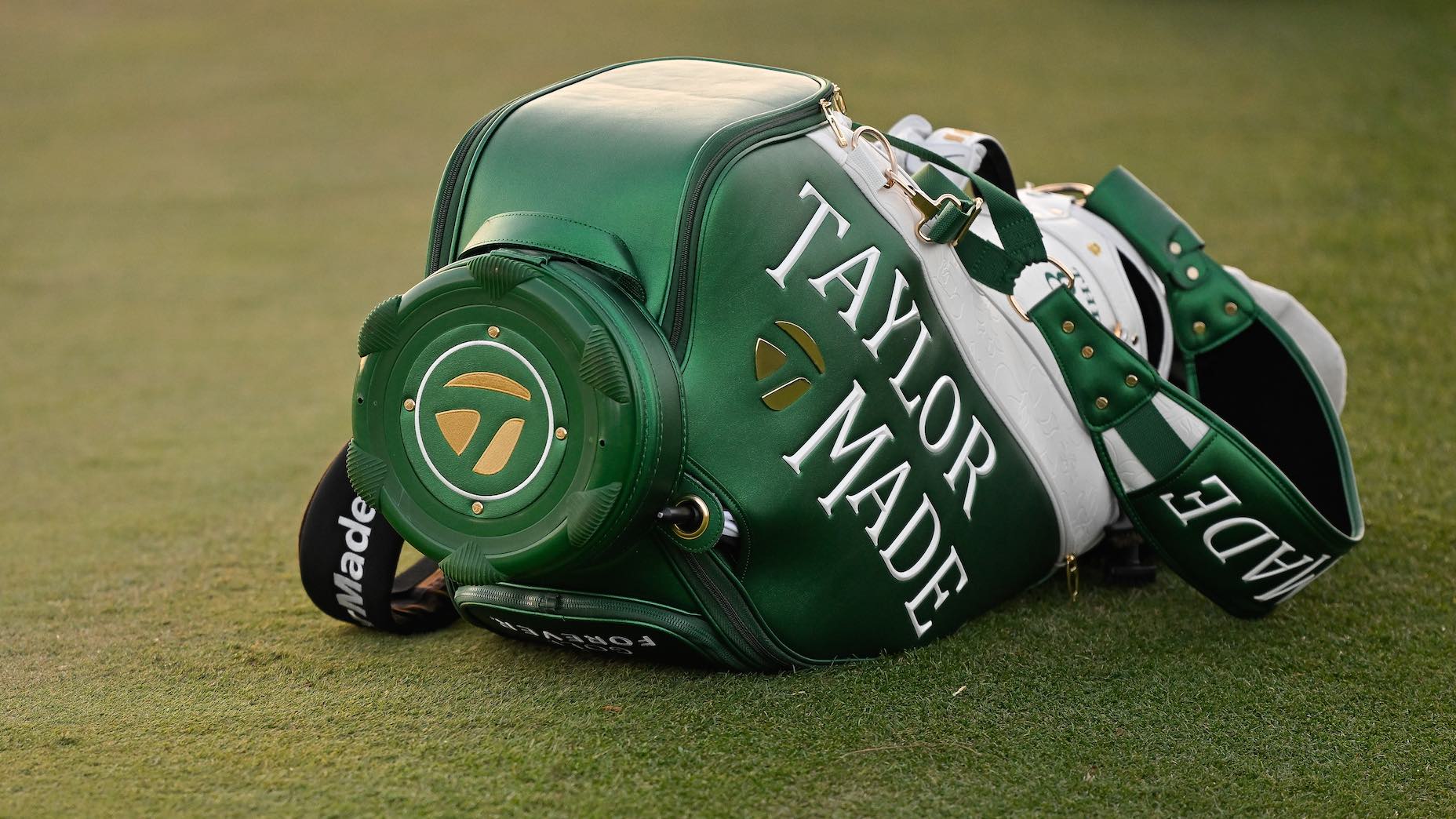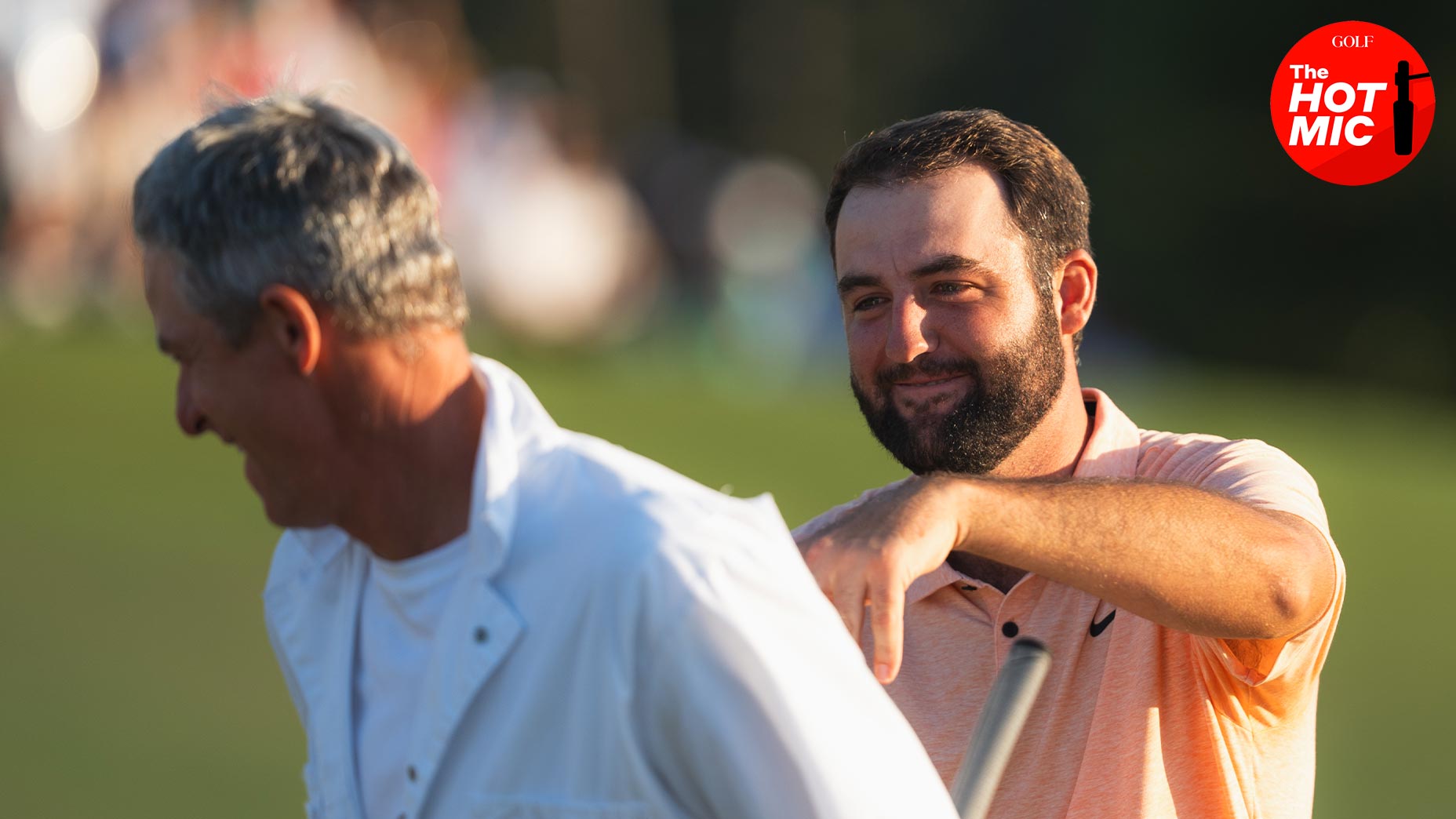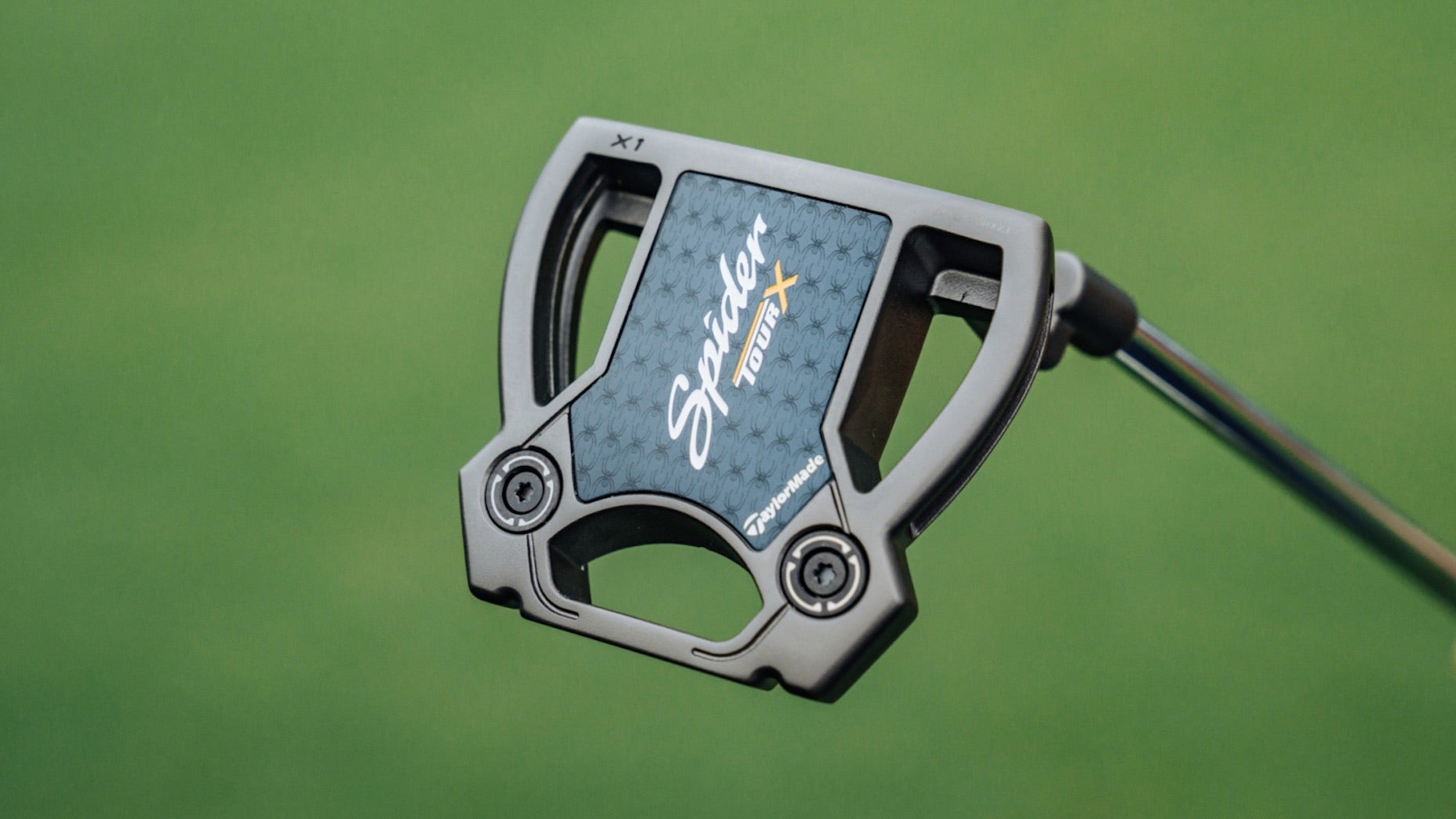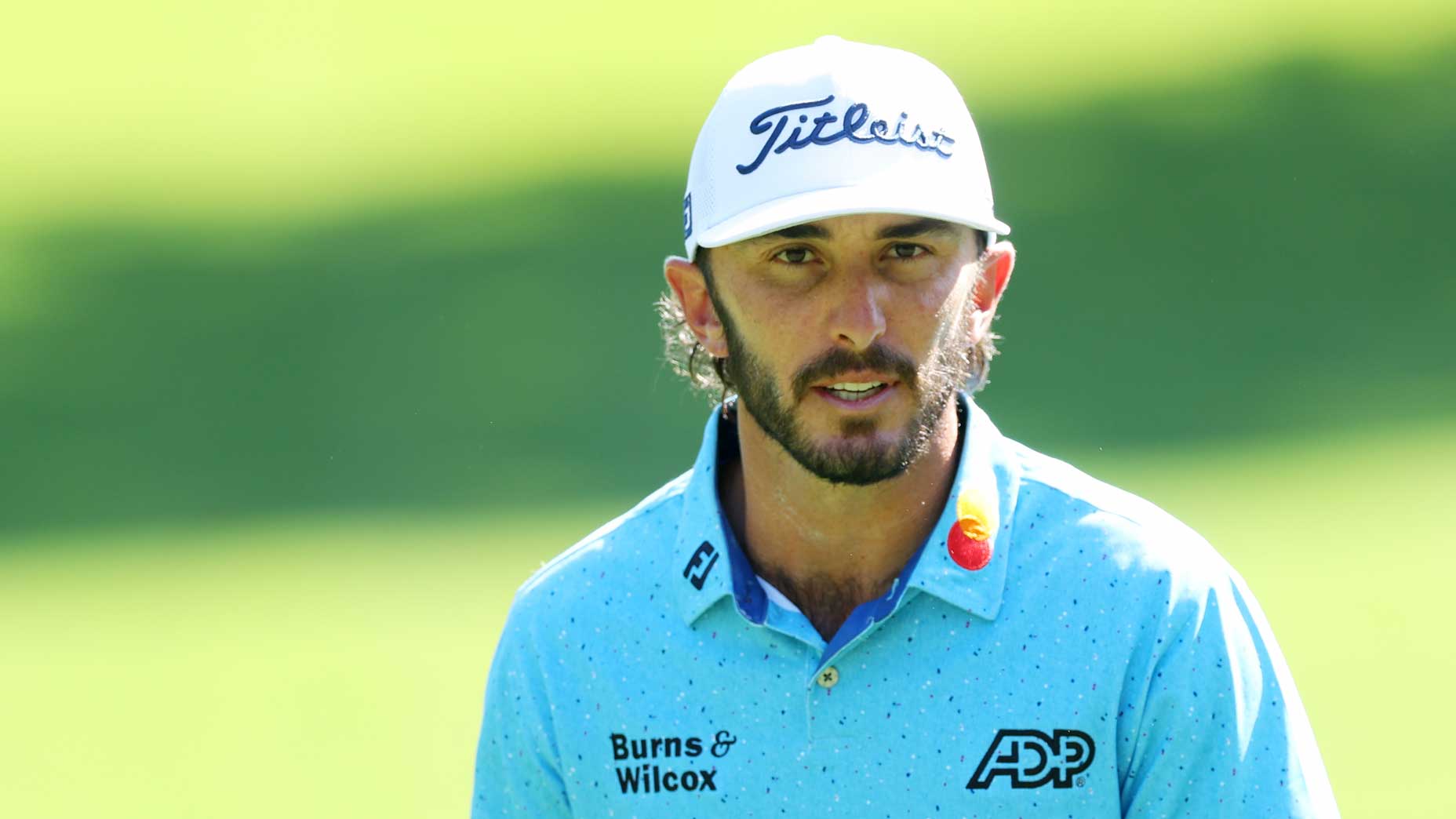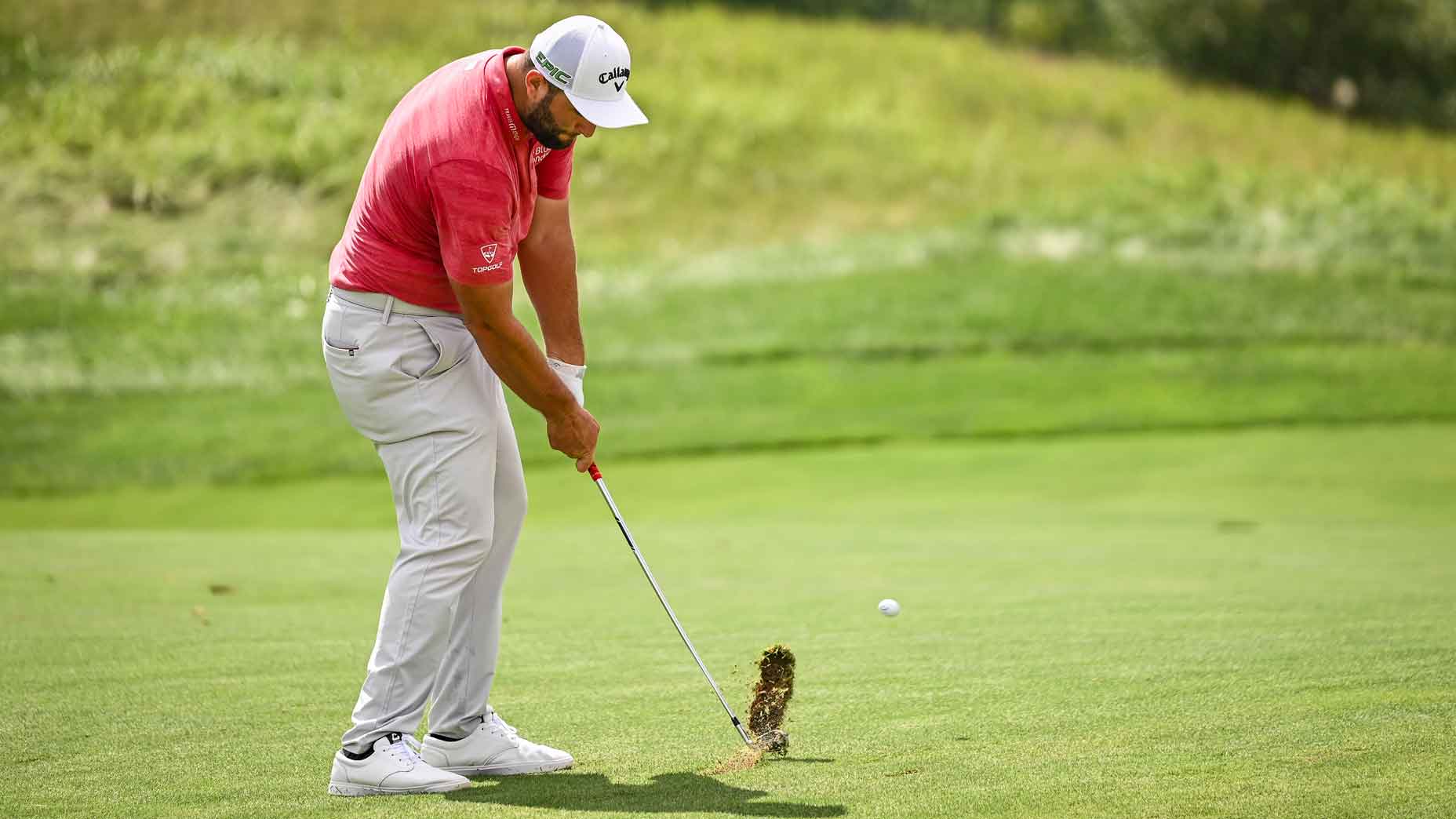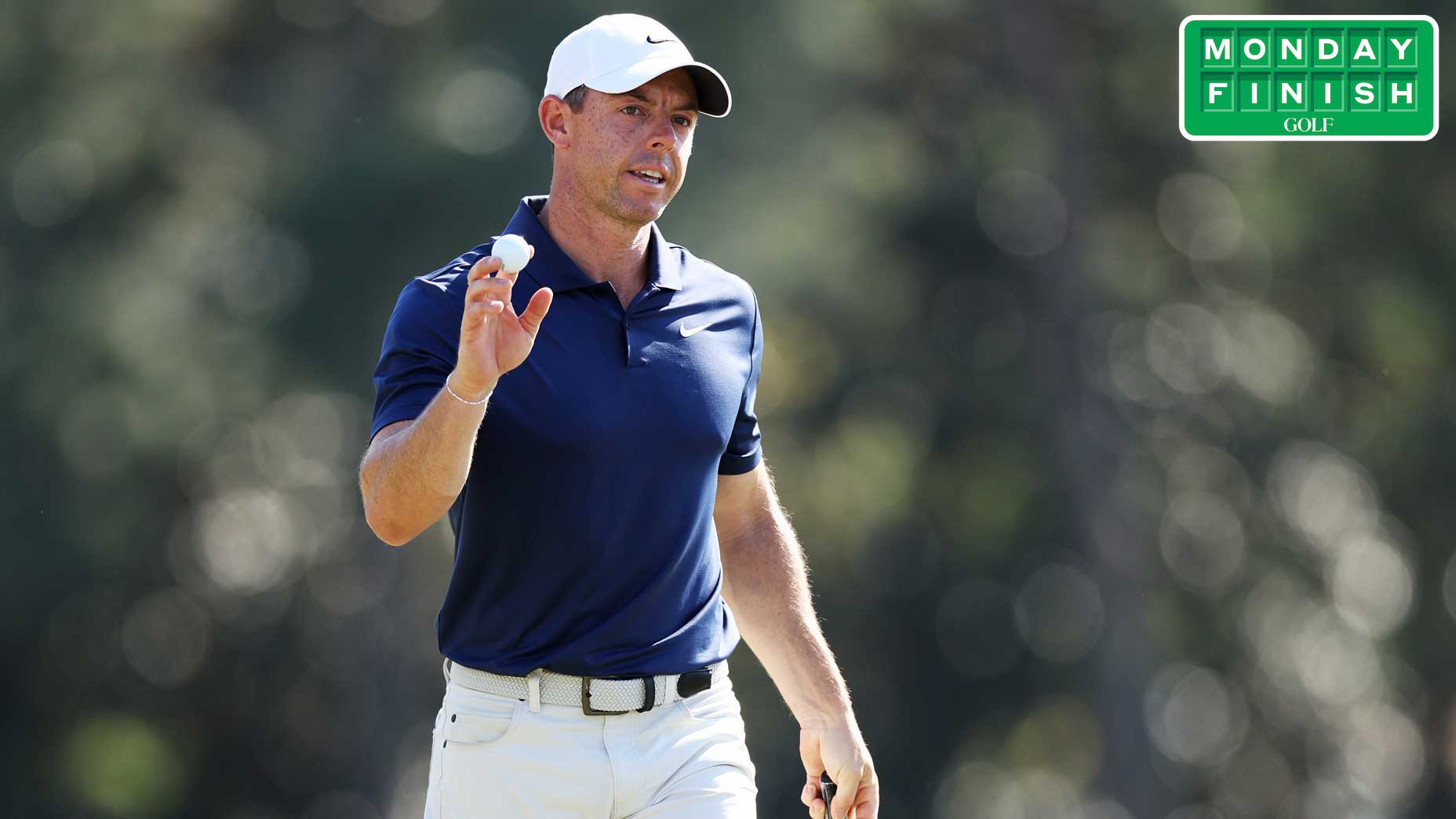On the Saturday night of the 1996 Masters, 25 years ago this month, I was leading the tournament that I wanted to win more than any other.
I had already won two Open Championships, an event I love. But even as a kid in Australia, watching on TV, I was completely absorbed by Jack Nicklaus at the Masters. I could tell that Jack Nicklaus was the ultimate golfer and that Augusta National was the ultimate golf course.
And then, in 1981, I played in my first Masters. On Saturday, I was in the last twosome—with Jack Nicklaus. He put his right hand on my shoulder and said, “I hope you’re as nervous as I am.” And I thought, What class. What a sportsman.
Sometime after that I started imagining I was the host of the Champions Dinner, with Australian wine, and Jack at the table.
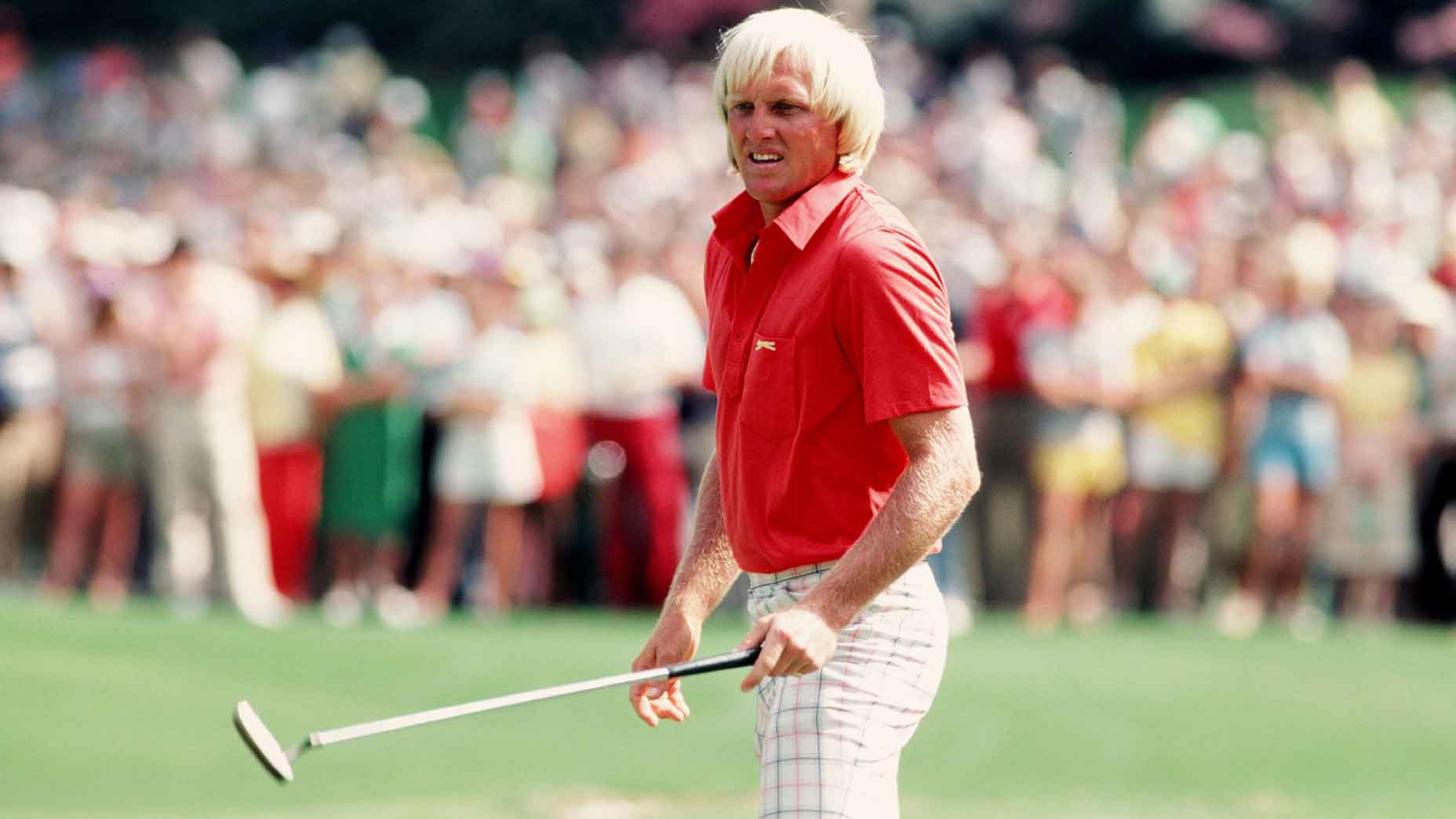
On that Saturday night in ’96, I had a six-shot lead over a man I was not at all close to, Nick Faldo. Ten years earlier, I had lost to Nicklaus when he won his sixth green jacket. I had other chances. But now I was 41. I had learned my lessons. Faldo and I, as different as two people could be, would be heading off as the day’s final twosome on Sunday afternoon.
As I came out of the locker room that Saturday night, I saw Peter Dobereiner, a pipe-smoking English golf writer. He said, “Even you can’t f— this up.” I tried to laugh it off. I can’t honestly say that I did.
About 12 hours later, I woke up in our rental house. It was Masters Sunday and something was wrong. I felt like my feet, hips and shoulders were out of alignment. I went for a walk in the neighborhood, trying to sort it out. I couldn’t.
I was married then to my first wife, Laura, the mother of our two great children. I got wind that Laura had arranged for friends from South Florida, where we lived, to fly to Augusta on my plane and watch me play the fourth round. Their plan was to celebrate the win on the way home and have a big party once we got there. I know she meant well, as did my friends. But I’m a big believer in never presuming anything. It created a distraction for me.
My caddie, Tony Navarro, and I got to the driving range. Butch Harmon, my swing coach, was with us. I said to them, “The club is stuck.” That is, my lower body wasn’t rotating and clearing correctly. It would not have been obvious to most golfers.
But when you’re doing anything at a high level—performing surgery, flying a plane, playing championship golf—there’s no such thing as being a little off. Little becomes big under pressure.
Butch said all the right things to try and make me both comfortable and good. But I didn’t feel either. I tried to hit my patented hard fade with a driver off the first tee, but I hit a dead pull into the left trees and made a bogey. I wasn’t worried about Faldo. I was worried about me.
Then, on the fourth hole, I hit an iron that was about 15 feet off-line. That was hugely off for me. I knew then that it was going to be a long day. I absolutely thought I could win, but I knew it wouldn’t be easy.
Over the years, I’ve talked to hundreds of people who seem to know that day better than I do, and I know it pretty well. The second shot into 9 that spun off the green. The chip shot for eagle on 15 that didn’t go in. The fat iron on 16 that went in the pond and ended the day. From there to the 18th hole, it was like a funeral out there.
I lost. Yet things changed in so many positive ways that day. The paradox of life.
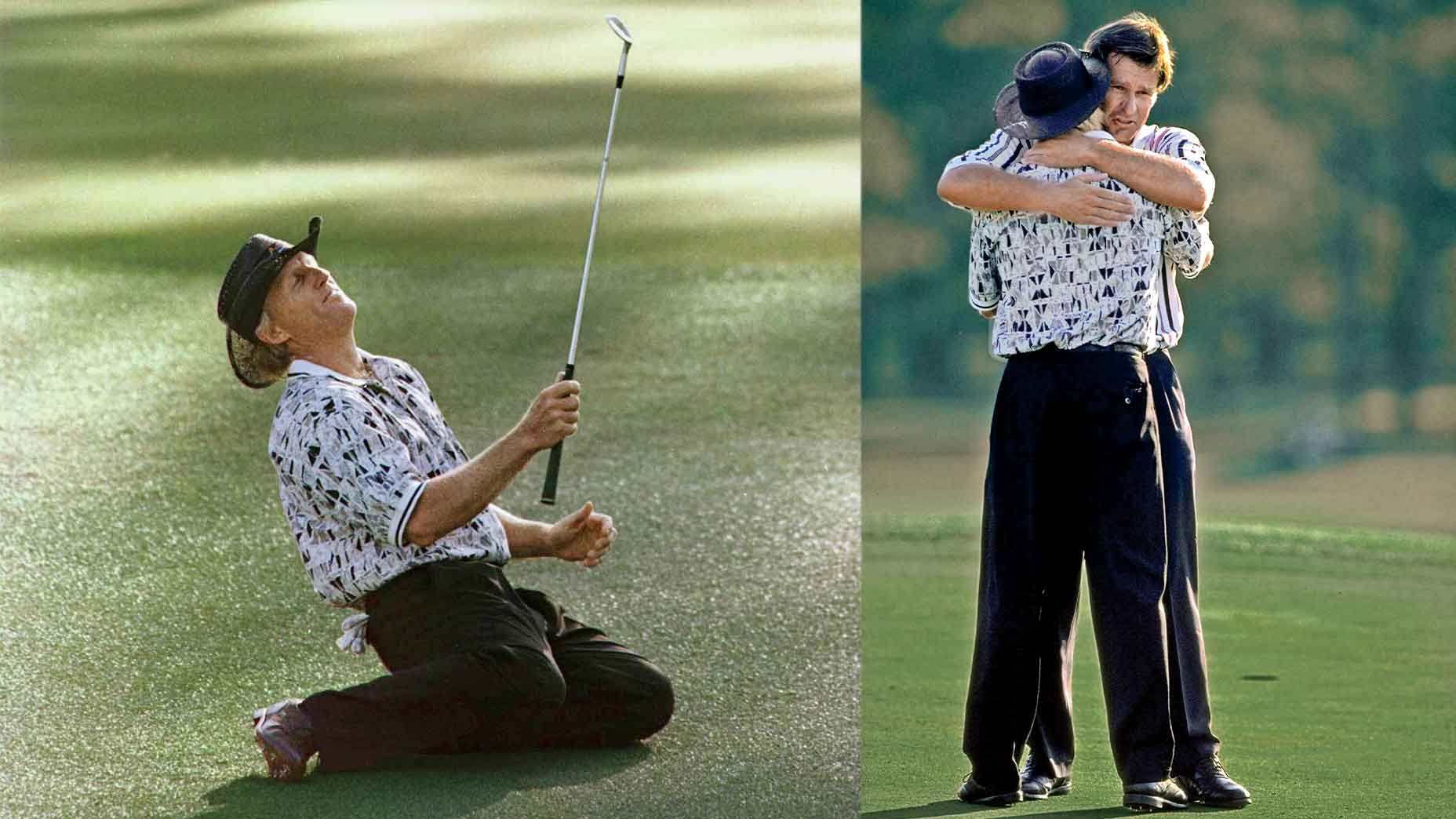
When it was over—I shot 78 and Nick shot 67 and won by five—he approached me and said, “I just want to give you a hug.” We each wrapped our arms around the other. He then said, “Don’t let the bastards get you down.” He was referring to what I was about to endure, the loser’s press conference. At that moment, I couldn’t have felt closer to him. I recognized, almost immediately, that we were handling victory and defeat just as Jack Nicklaus had done so many times, with class and dignity. As true sportsmen. We were putting golf first.
I went to the pressroom and answered every question as honestly as I could. When I next played, it was at Jack’s tournament, the Memorial, and I told reporters about the more than 7,500 handwritten letters I had already received. They all pretty much said the same thing: You honored the game on that Sunday, you taught all parents and future athletes about sportsmanship.
After the ’96 Masters, people around the world had a different, I think far truer, sense of me. And that’s why I say my life changed on that Sunday. I lost yet I won. People could see I put the game and its values first. For every golfer, that is our ultimate responsibility.
We boarded my plane. It was packed but quiet. I quickly realized the day had been all about sport in its truest, deepest sense. I was in the arena where you are exposed to your core, and I had given it my best. What more could I do? My approach to life is to never look back, only forward and always be positive. I said to my friends, “Thank you for coming. Let’s move on. And let’s party!”
The plane took off for home.


